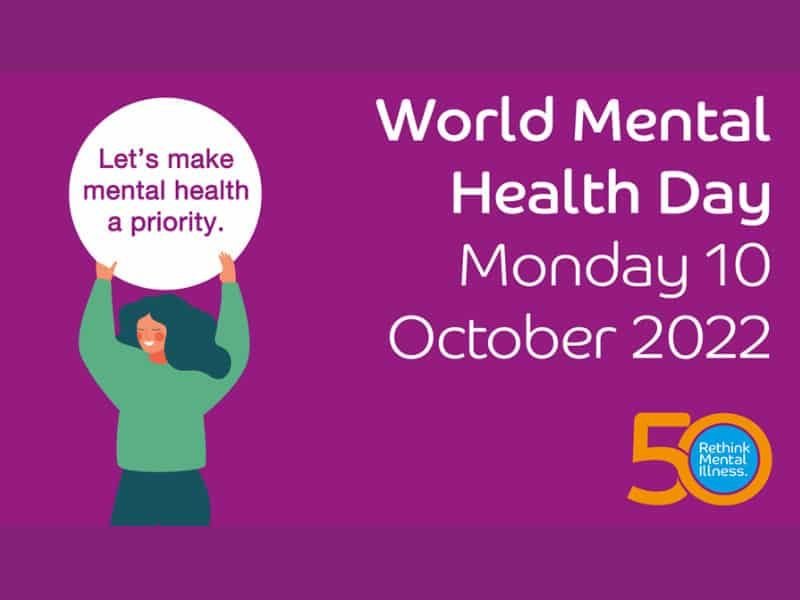Recognising the impact of the Covid-19 pandemic on people and communities around the world, the theme for this year’s World Mental Health Day is ‘Make mental health and wellbeing for all a global priority’.
An initiative of the World Federation for Mental Health (WFMH), World Mental Health Day is marked each year on 10 October.
The Federation aims to raise public awareness about the importance of mental health and to improve understanding of, and attitudes towards, mental health disorders.
The World Mental Health Day initiative is widely promoted internationally, nationally and locally.
According to the World Health Organisation (WHO) on its WMHD 2022 page, it is a chance ‘to talk about mental health in general, how we need to look after it, and how important it is to talk about things and get help if you are struggling.’
One in eight struggle
The WHO also points out that, although the impact of Covid has taken a toll on people’s mental health, there were already about one in eight people around the world living with a mental disorder before the pandemic.
During the first year of the pandemic, the number of people experiencing anxiety and/or depression is estimated to have increased by more than 25% – while the disruption to health services has seen them struggling to cope with the increased demand.
(New research shows that, with nearly one in four mental health patients having to wait more than 12 weeks to start treatment, many are turning to hospital accident and emergency services for help or dialling 999. Please note that anyone needing immediate support should contact Samaritans on 116 123.)
In the UK, the charity Mind is using World Mental Health Day to highlight the different ways in which people talk about their experiences of mental health problems.
Information about Mind’s campaign ‘If this speaks to you, speak to us’ is also available in Welsh.
Cost of living
Of course, it’s not only the pandemic that has impacted people’s mental health. As the charity Rethink Mental Illness points out, not only are more people experiencing poor mental health because of the rising cost of living, but those living with severe mental illness are disproportionately affected.
Rethink also notes that:
‘For those of us experiencing mental illness, we live in an unequal world. There’s no two ways about it. Stigma. Discrimination. Lack of support. Limited access to housing, employment and welfare. It doesn’t make good reading.’
The charity goes on to warn that black people are still four times more likely than their white counterparts to be sectioned and that LGBT+ people are at more risk of suicidal behaviour and self-harm than others.
Coping with mental health problems
On a more positive note, on the day that footballer Harry Kane launches his Foundation with the aim of helping to normalise conversations around mental health and end the stigma that still surrounds the issue, the initiative Mental Health Football Wales shows that people’s mental wellbeing can be improved through something as simple as playing football.
And if you’re looking for other ways to improve your mental health, then the Mental Health Foundation’s guide Our best mental health tips – backed by research might be of interest (available also in Welsh, Pashto, Ukrainian and Dari).

